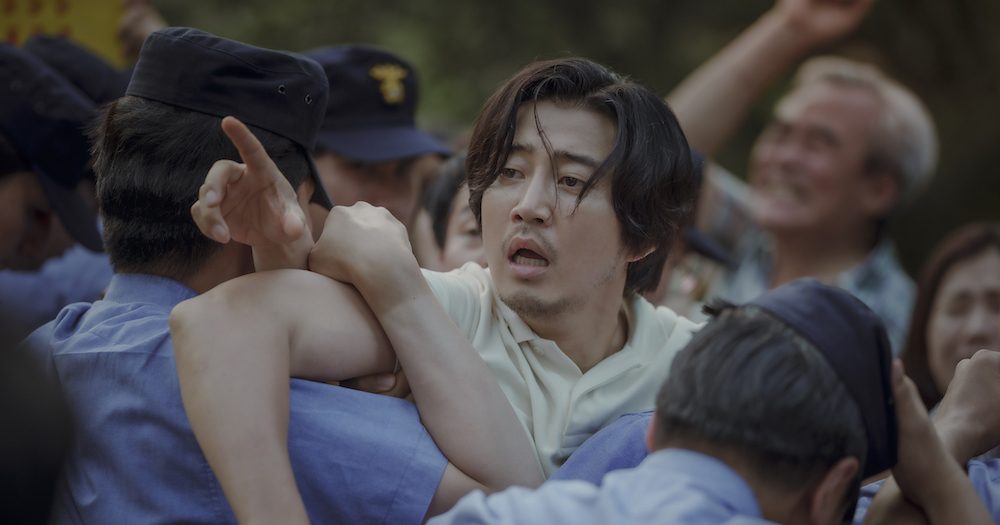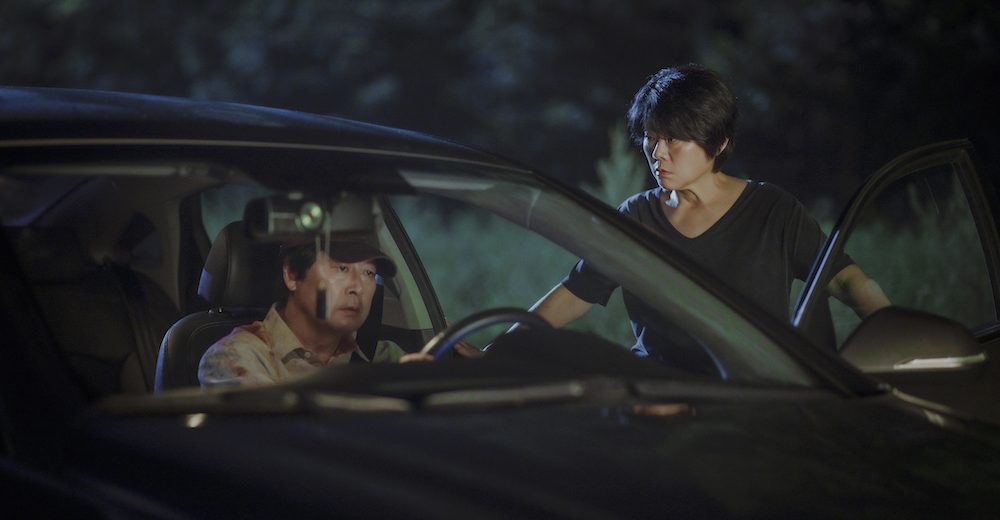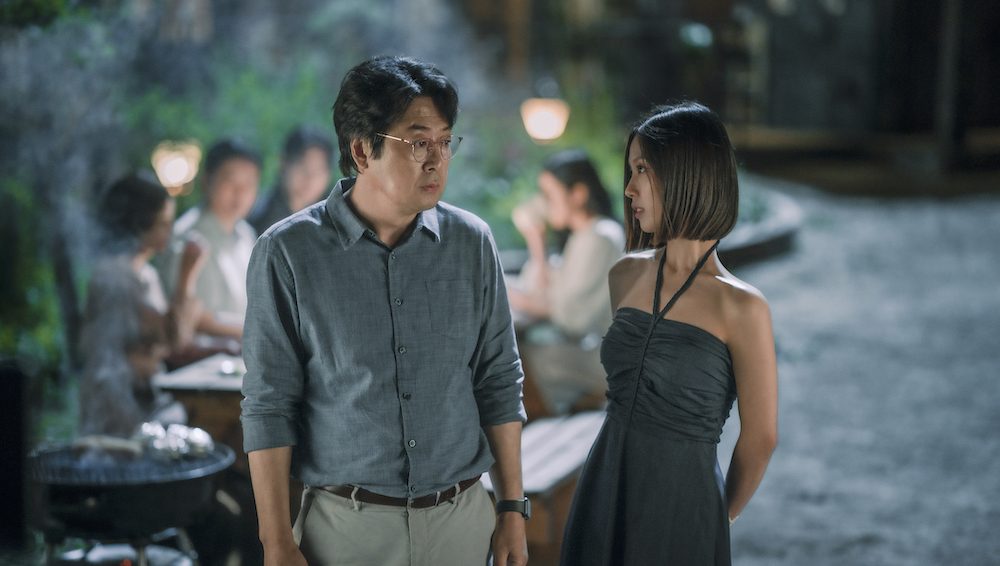Netflix’s ‘The Frog’ begins with two unsuspecting men who are caught unawares by the arrival of very suspicious people in their lives. For Sang-ju, who runs a motel, the presence of a new guest turns everything upside down for him. For Yeong-ha, it is the decision to rent his place to a woman who has a child with her. At first, the woman seems like just another mother, but later, she turns out to be a menace who refuses to leave Yeong-ha alone. As their stories are narrated to us, the mention of the frog comes into the picture. This resonates with the title of the show and adds more depth to the narrative. SPOILERS AHEAD
The Title Directs the Focus of the Story Toward Sang-ju and Yeong-ha

Often, in a story about serial killings, the storytellers tend to focus on the perspective of the serial killer to fascinate the audience. If not this, then they either employ the point of view of the detective who has to solve the case or the victim who falls at the hands of the murderer. Rarely do we get to see the story of the people who are not directly related to the crime but came under the umbrella of its impact and have suffered because of it. This is what ‘The Frog’ does differently, and its intention is reflected in its choice of title.
Originally, the show is called ‘Amudo Eobsneun Supsokeseo,’ which roughly translates to ‘In the Woods With No One.’ For the writer Son Ho-young, the idea for the story stemmed from the thought of walking alone in a tranquil forest where peace is disrupted by the presence of a nefarious element. While he was focused on the idea of living in seclusion and how this sense of peace can easily turn into terror, he chose the perspective of the people who can easily go unacknowledged or ignored with reference to the bigger picture.
With Sang-ju and Yeong-ha, we are presented with two people who discover that a murder has taken place on their property. While the situation is the same on paper, their storylines diverge considerably. For Sang-ju, everything goes downhill when his motel’s name is associated with a serial killer, and for Yeong-ha, who doesn’t want to suffer the same fate, the decision to keep the crime hidden turns against him when the killer comes back to claim their territory.

In both these situations, as things get worse for them, Sang-ju and Yeong-ha wonder why the sword of fate fell on them. Sang-ju feels bad because it was he who invited the serial killer to stay at the motel. He feels like he sabotaged himself and wonders why something like this happened to him. As he looks back at his life, he sees a pattern emerge, which makes it seem as if he is cursed, and the possibility of everything good in his life is darkened by one bad thing or another. In the same vein, Yeong-ha wonders why Seong-a, the woman who he suspects of killing her son, wants no other house but his. He constantly chides himself for not doing something sooner and wonders if he could have had a different outcome if he made different choices.
Both their situations are comparable to a frog that has stones thrown at it by kids. It is by no fault of the frog and is entirely upon the nature of the kids. Still, the injured frog wonders what it did to deserve the stoning. It wonders why, of all frogs, the kids targeted him and threw stones at him. As the serial killer Hyang-cheol tells Sang-ju, it all happened simply by coincidence because they happened to cross paths. It could have been someone else, and it wouldn’t have made any difference to Hyang-cheol. In the same vein, the frog doesn’t realize it is tortured simply because it came across the cruel kids. With this analogy, the show explains how a lot of bad things are not the fault of the victim and those affected by it. It’s simply a matter of bad luck, of being at the wrong place at the wrong time with the wrong person.
Read More: The Frog: Is Lakeview Motel a Real Place in Korea?


You must be logged in to post a comment.